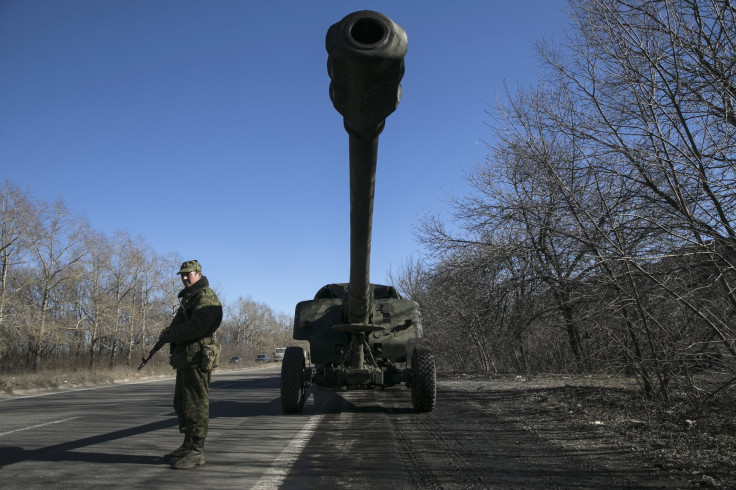East Ukraine War: Donbas Self-Rule Decision Will Not Bring Peace, Says Top US Ambassador

Constitutional changes approved Friday by Ukraine’s highest court to help end the war in Donbass are unlikely to end hostilities between Russian-backed rebels and Ukrainian troops, former U.S. ambassador to Ukraine Steven Pifer said. The legal changes, which still must get approval from the parliament in Kiev, seek to allow some degree of self-rule for the rebels -- who are fighting for autonomy in the contested regions of Luhansk and Donetsk -- in exchange for peace across both regions.
However, Pifer, who served as U.S. ambassador to Ukraine from 1997 to 2000, doesn’t think the ruling will make a difference. “This court decision is going to be a minor thing because there is no desire by the Russians and the separatists to implement it, or anything contained inside the Minsk II agreement,” Pifer said. “If you look at the leaders of the rebels, they’re saying already that they would never allow Kiev to reestablish political sovereignty to the territory there.”
It remains to be seen whether or not the proposal will be passed in parliament, given the intense opposition to allowing Russian separatists any suggestion of victory by granting partial self-rule. The constitutional changes, though, are part of a countrywide process designed to devolve power from Kiev to the nation's regional areas.
The court’s ruling was "an important step that moves us closer to momentous changes for the state," Ukrainian President Petro Poroshenko wrote in a Facebook post. "For the first time in Ukraine's history, its head of state and government are ceding a large degree of their powers to the regions."
However, if the parliament does agree to new laws, it’s unclear how they will be enforced in the war-torn east.
“In the Minsk II document Ukraine talks about giving a special status law, so this court decision allows them to fulfill that," Pifer said, "but the controversy is not going to be about the passing of the law but what it actually says and does, and how they then implement it in the east of the country.”
© Copyright IBTimes 2025. All rights reserved.




















